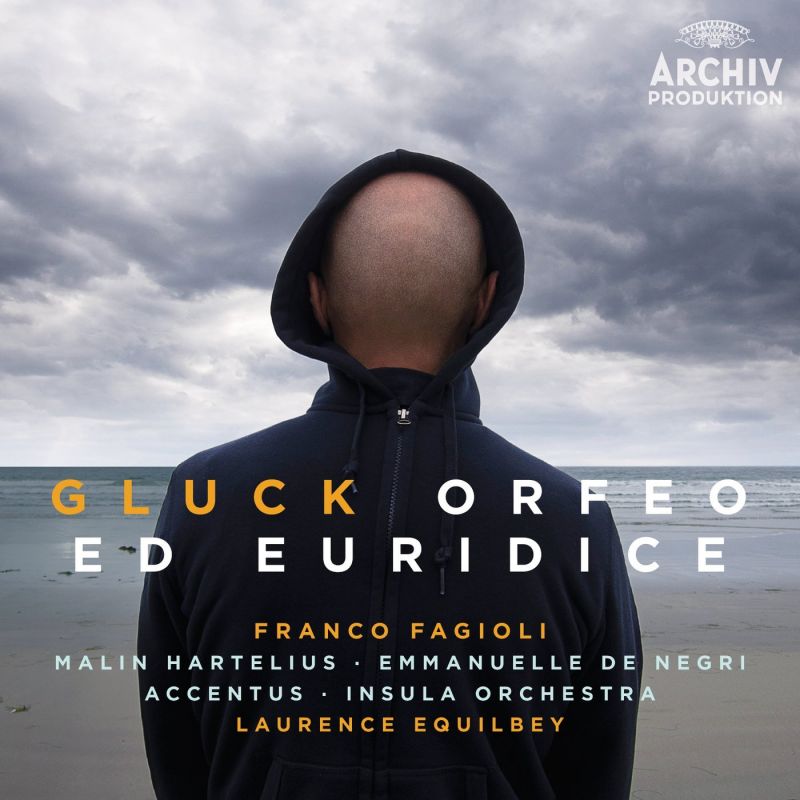GLUCK Orfeo ed Euridice
View record and artist detailsRecord and Artist Details
Composer or Director: Christoph Gluck
Genre:
Opera
Label: Archiv
Magazine Review Date: 10/2015
Media Format: CD or Download
Media Runtime: 152
Mastering:
DDD
Catalogue Number: 479 5315AH3

Tracks:
| Composition | Artist Credit |
|---|---|
| Orfeo ed Euridice |
Christoph Gluck, Composer
Accentus Chamber Choir Christoph Gluck, Composer Emmanuelle De Negri, Amore, Soprano Franco Fagioli, Orfeo, Countertenor Insula Orchestra Laurence Equilbey, Conductor Malin Hartelius, Euridice, Soprano |
Author: Tim Ashley
The set consists of two different edits of the resulting hybrid: a highlights disc, spuriously called ‘Orpheo’, containing the principal arias together with the Paris additions; and the 1762 score more or less complete, though Fagioli adopts the revised ending of ‘Che farò senza Euridice’, transposed into the original key as in Berlioz’s edition of 1859. It’s all a bit fussy, and variabilities in the performance left me more than once questioning the highlights disc’s necessity.
Vocally it’s often impressive. Anyone concerned that Fagioli has recently been limiting himself solely to the virtuoso cannot help but be struck here by his even purity of line, the androgynous beauty of his tone and his sparing use of those baritonal lower registers, his deployment of which has seemed a bit over-prominent of late. ‘Addio, o miei sospiri’, meanwhile, is good, but not quite as good as Max Emanuel Cencic’s darker-toned, smoother performance on Decca’s recent ‘Five Countertenors’ album.
Fagioli’s characterisation could, however, occasionally be sharper. He’s strong in Act 1, where his grief really bites, and where he has disquieting moments of premonitory doubt when faced with the conditions imposed by Emmanuelle de Negri’s strikingly authoritarian Amore. The sad wonder with which he gazes on the Elysian Fields is beautifully realised. Yet during the confrontation with Malin Hartelius’s Euridice, his singing lacks the detailed intensity with which she registers her growing bewilderment at his behaviour. ‘Che farò’, very introverted, is not quite as overwhelming as it might be.
Equilbey and the Insula Orchestra are painstaking in their re creation of Gluck’s original sound world: period strings and brass underscore the harshness of Orfeo’s isolation where the warmer sound of conventional instruments tends to console. Speeds are brisk, but in veering away from Muti-like solemnity, Equilbey sometimes lets the tension drop, particularly in the Dance of the Furies, where Marc Minkowski, using the 1774 score, has more edge. The choral singing from Accentus, though, is exceptional in its nobility and fervour: in Act 2 they are extraordinarily touching as the Furies slowly yield to the power of Orfeo’s singing.
Discover the world's largest classical music catalogue with Presto Music.

Gramophone Digital Club
- Digital Edition
- Digital Archive
- Reviews Database
- Full website access
From £8.75 / month
Subscribe
Gramophone Full Club
- Print Edition
- Digital Edition
- Digital Archive
- Reviews Database
- Full website access
From £11.00 / month
Subscribe
If you are a library, university or other organisation that would be interested in an institutional subscription to Gramophone please click here for further information.




